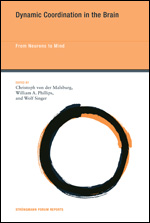- Home
- Publications
- Intrusive Thinking
- Deliberate Ignorance
- Youth Mental Health
- Neocortex
- Interactive Task Learning
- Agrobiodiversity
- Emergent Brain Dynamics
- Rethinking Environmentalism
- Cultural Nature of Attachment
- Investors and Exploiters in Ecology and Economics
- Computational Psychiatry
- Complexity and Evolution
- Pragmatic Turn in Cognitive Science
- Translational Neuroscience
- Trace Metals and Infectious Diseases
- Pathways to Peace
- Rethinking Global Land Use
- Schizophrenia
- Cultural Evolution
- Language, Music, and the Brain
- Evolution and The Mechanisms Of Decision Making
- Cognitive Search
- Animal Thinking
- Disease Eradication in the 21st Century
- Envisioning Healthcare 2020
- Dynamic Coordination
- Linkages of Sustainability
- Origin of Syntax
- Perturbed Clouds
- Better Than Conscious?
- Our Board
- Contact
- Impressum / Imprint
- Privacy Notice
- Publications
- Intrusive Thinking
- Deliberate Ignorance
- Youth Mental Health
- The Neocortex
- Interactive Task Learning
- Emergent Brain Dynamics
- Agrobiodiversity
- Rethinking Environmentalism
- Cultural Nature of Attachment
- Investors and Exploiters in Ecology and Economics
- Computational Psychiatry
- Complexity and Evolution
- Pragmatic Turn in Cognitive Science
- Translational Neuroscience
- Trace Metals and Infectious Diseases
- Pathways to Peace
- Rethinking Global Land Use
- Schizophrenia
- Cultural Evolution
- Language, Music, and the Brain
- Evolution And The Mechanisms Of Decision Making
- Cognitive Search
- Animal Thinking
- Disease Eradication in the 21st Century
- Better Doctors, Better Patients, Better Decisions
- Dynamic Coordination in the Brain
- Linkages of Sustainability
- Biological Foundations and Origin of Syntax
- Clouds in the Perturbed Climate System
- Better Than Conscious?
Dynamic Coordination
in the Brain
From Neurons to Mind
Edited by
Christoph von der Malsburg, William A. Phillips and
Wolf Singer
Additional support
provided by:
The German Research Foundation
![]()
